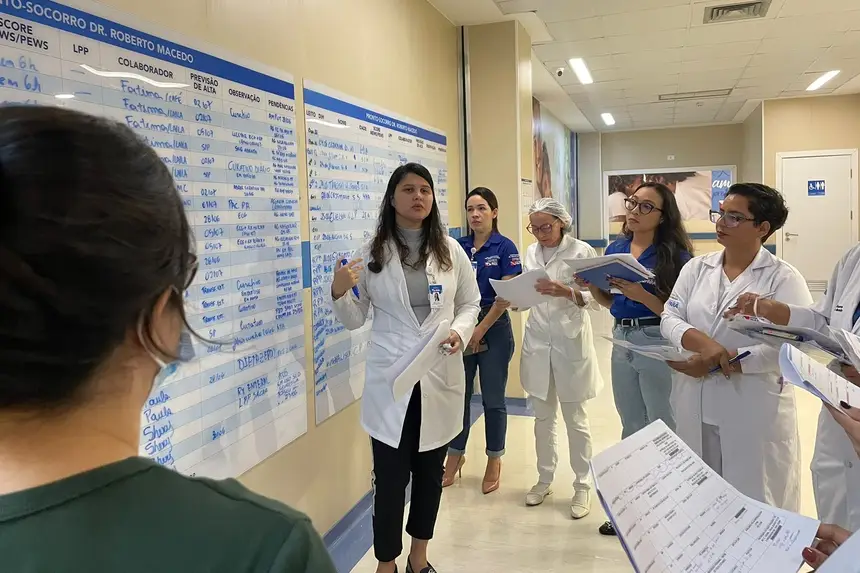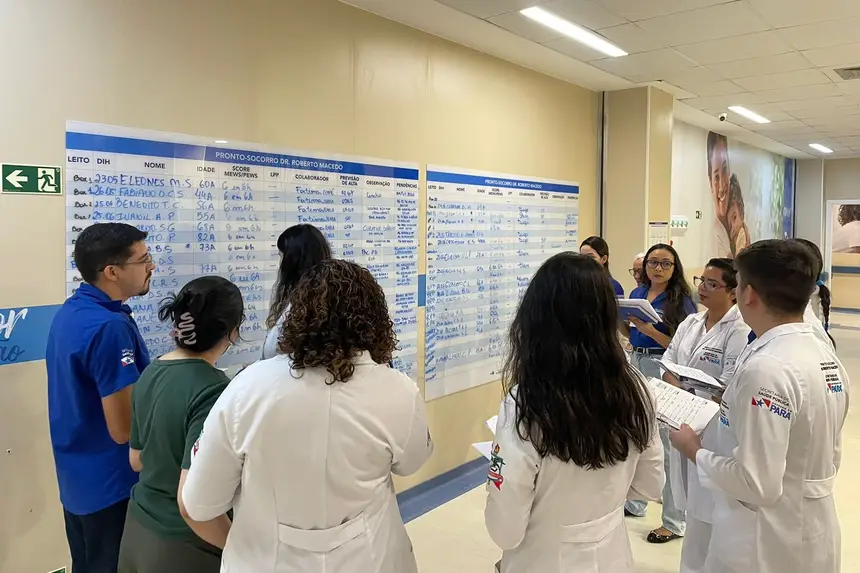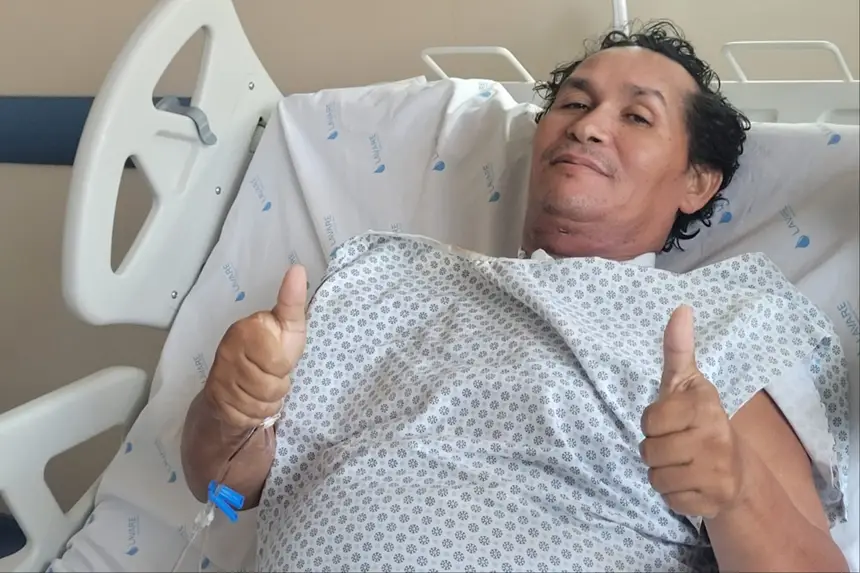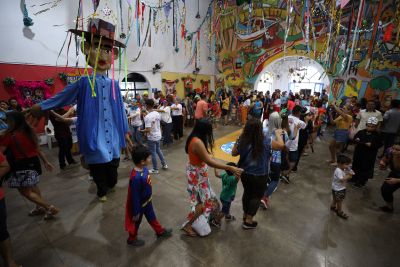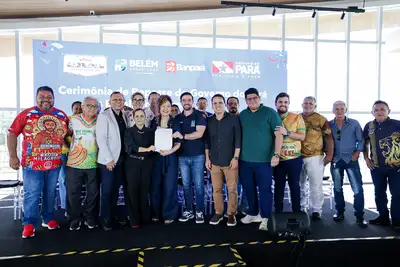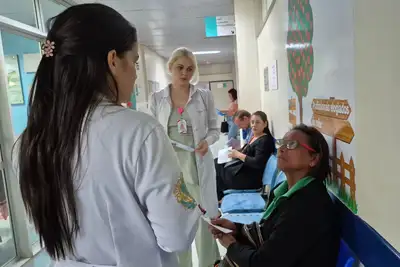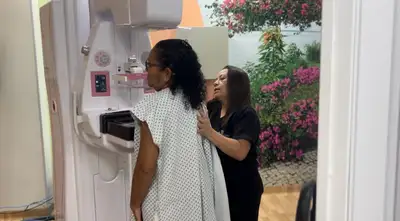PSRM discusses daily safety strategies to improve emergency and urgent care
Quick meetings between care teams help prevent risks and ensure quality in emergency and urgent services
Maintaining the commitment to provide quality and safe health care, the Dr. Roberto Macedo Emergency Room (PSRM), in Belém, has implemented a routine of short daily meetings, known as Safety Huddles, to align strategies among teams and enhance care in the unit.
Held at the beginning of each shift, the meetings last between 10 and 15 minutes and bring together leaders from the care sectors to discuss critical points, such as patients at higher risk of falls (Patient Safety Goal 6), equipment maintenance needs, and changes in care flows.
"These meetings strengthen teamwork and create a culture of failure prevention. By sharing information at the start of the day, we can act more swiftly and reinforce patient safety," explains Lívia Palheta, coordinator of the Patient Quality and Safety Center (NQSP).
Safety that the patient perceives - Adail José Nova Novais, a resident of Bonito, who has been hospitalized for nine days to treat a dental infection, praised the initiative.
"The care here is already very good, the professionals are attentive. Knowing that they meet every day to think about how to improve even more gives us even more confidence. I hope other public hospitals adopt this practice," he commented.
Results and structure - In the first six months of 2025, PSRM performed 64,340 emergency and urgent care services in the adult and pediatric sectors. With 119 beds distributed among emergency care, hospitalizations, and ICUs, the unit also has six surgical rooms equipped for medium and high complexity procedures, including minimally invasive techniques such as videolaparoscopies.
According to the unit's general director, Carlos Vinícius Ribeiro Quadros, the practice has a direct impact on the patient experience.
"The Safety Huddle improves teamwork and multidisciplinary integration. The reflection of this is safer and more efficient care for those who arrive at the hospital seeking help," he stated.
Safety culture - More than just meetings, Safety Huddles are strategic moments to promote clear and agile communication among professionals. The practice helps reduce errors, minimize harm, and create an environment focused on safety, essential for achieving quality hospital care.
PSRM, managed by the State Department of Public Health (Sespa), operates 24 hours a day and attends to critical cases in specialties such as general surgery, vascular, pediatric, thoracic, maxillofacial, and neurosurgery. The unit is a reference for emergency and urgent care in Belém and the metropolitan region.


